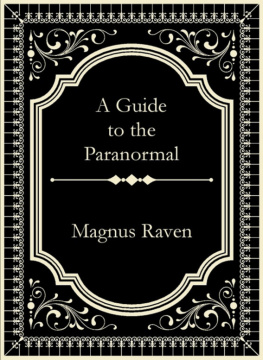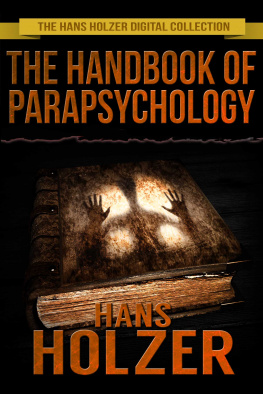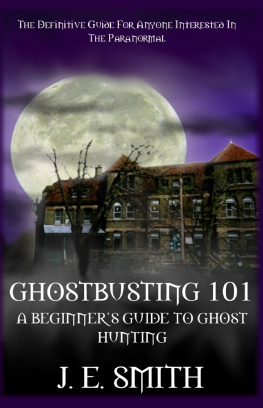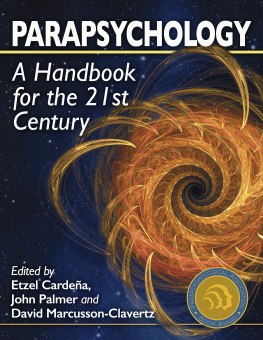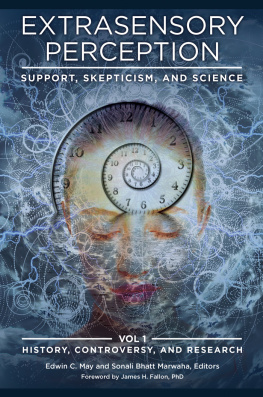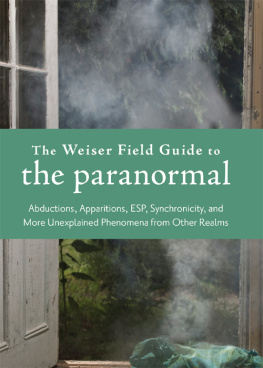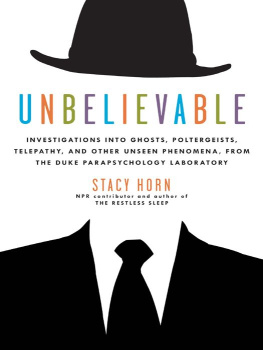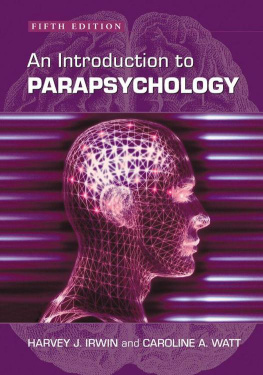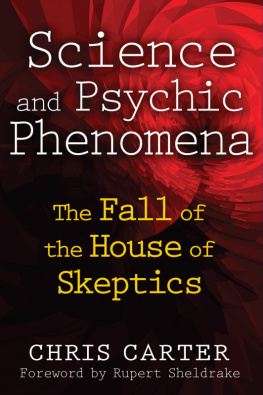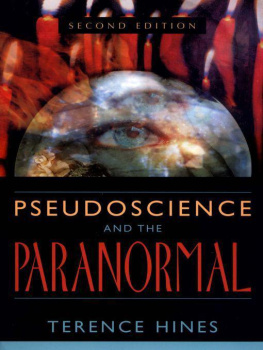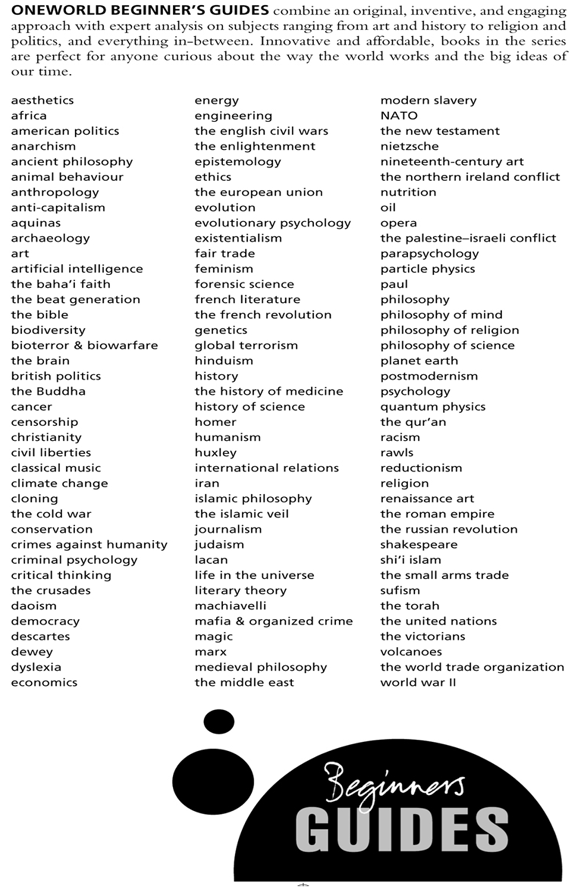Parapsychology
A Beginners Guide
Parapsychology
A Beginners Guide
Dr Caroline Watt
A Oneworld Paperback Original
Published in North America, Great Britain and Australia by
Oneworld Publications, 2016
This ebook edition published by Oneworld Publications, 2016
Copyright Caroline Watt 2016
The moral right of Caroline Watt to be identified as the Author
of this work has been asserted by her in accordance with
the Copyright, Designs and Patents Act 1988
All rights reserved
Copyright under Berne Convention
A CIP record for this title is available from the British Library
ISBN 978-1-78074-887-0
eISBN 978-1-78074-888-7
Typeset by Jayvee, Trivandrum, India
Oneworld Publications
10 Bloomsbury Street
London, WC1B 3SR
England
To my parents, David and Dorothy Dow
Contents
I am grateful to Mike Harpley and Shadi Doostdar at Oneworld for their encouragement and editorial guidance. I thank Professor Etzel Cardea, Professor Adrian Parker, and Dr David Luke for giving valuable feedback on the draft manuscript. Professor Bernard Carr advised me on theoretical physics matters, for which I am very grateful. All along the way, I received vital help and support from my long-time collaborator and partner, Professor Richard Wiseman. Thanks Richard. Finally, I was fortunate to be awarded the Perrott-Warrick Senior Researcher Fellowship, which relieved me of some other academic duties so that I could devote time to writing this book, and I am deeply grateful for this support.
Parapsychologists study a wide range of paranormal experiences. The fictional Sue (in the USA) and her brother Jon (in Australia) will help to illustrate the categorization and terminology that parapsychologists tend to employ. A wider range of terms and acronyms is presented in the Glossary at the end of this book.
Extrasensory perception (ESP)
Work into ESP involves the following three topics:
Telepathy: The transfer of information between individuals by means other than the known senses (from the Ancient Greek word or tele , meaning distant, and or pathos , meaning feeling), e.g. Jon has a car accident and thinks about Sue. At the same time, Sue hears an internal voice telling her that Jon has been involved in a car accident.
Precognition: The perception of information about future events, also referred to as future sight, second sight, and prophesy (from the Latin word pr- , meaning before, and cognitio , meaning acquiring knowledge), e.g. Sue dreams that Jon will have a car accident, and just a day later he has a car accident.
Clairvoyance: The obtaining of information about a place or event by unknown means (from French words clair , meaning clear, and voyance , meaning vision), e.g. Sue has no prior knowledge of the street where Jon is living, but one day she receives a vivid impression that he lives next to an unusual domed structure. Parapsychologists sometimes use the term remote viewing to refer to instances of clairvoyance in which information is acquired from a geographical location.
Psychokinesis (PK)
The influence of mind on an object, physical system, or biologic-al system, without physical interaction (from the Greek or psyche , meaning mind, and , meaning movement). Abbreviated as PK, this work involves the following three topics:
Macro-PK: The large-scale movement of physical objects with the mind, sometimes referred to as telekinesis, e.g. Sue went to a dinner party where her friends started to mimic the feats of Uri Geller. Sue watched while a spoon held by her friend appeared to bend without any physical force being exerted.
Micro-PK: Mental influence over small-scale physical systems, such as dice and electronic random number generators, only detectable using statistics, e.g. Sue consistently beats the odds when she plays casino games involving dice.
Bio-PK: Mental influence over biological systems, including plants, insects and animals, in vitro samples, and humans. This category of research includes remote staring detection and distant healing, e.g. Jon is sitting on a bus. The hairs tingle on the back of his neck and he feels that he is being watched. When he looks around he sees that someone at the back of the bus is staring at him.
PSI
Often it is difficult in practice to distinguish between the above categories. For example, if Sue somehow detected that Jons car had a mechanical fault, this might have caused unconscious anxiety that led to the dream. In this case, Sue may have been responding to information about the cars current dangerous condition (= clairvoyance) rather than to future events (= precognition). Therefore, parapsychologists often use the neutral umbrella term psi (rhymes with eye) to denote the unknown factor underlying both ESP and PK phenomena.
Rubber-hand illusion set-up
Eliciting the illusion by simultaneously stroking the fake hand and the real hand
Semi-realistic depiction of facial features (left) and jumbled-up version of the same features (right)
ESP card symbols
Set-up for clairvoyance test
Laying out the cards against your guesses
Card-guessing Record Sheet
Random Number Table
Informal Micro-PK Record Sheet
Formal Micro-PK Record Sheet
Sender Record Sheet
Receiver Record Sheet
The concrete evidence for most of the psychic phenomena under discussion is good enough to hang a man twenty times over.
William James
Many brilliant men have investigated the paranormal but they have yet to find a single person who can, without trickery, send or receive even a three-letter word under test conditions.
Milbourne Christopher
Surveys suggest that around 50% of those in both America and Britain believe in the existence of the paranormal, and about 30% of people claim to have had a psychic experience. This statistic means that, if you have not had a paranormal experience yourself, you probably know someone who has. This book describes the research that has been conducted in an attempt to understand these unusual, but surprisingly common, experiences.
The study of such experiences, parapsychology, can be traced back to some strange events in the mid-nineteenth century in Hydesville, New York, which seemed to suggest that some individuals could communicate with the deceased. Pioneering researchers grappled with the challenge of testing claims of afterlife communication. In the process they developed the three main approaches that are now employed in parapsychological research. But before we find out more about how parapsychology came to be what it is today, lets briefly consider what parapsychology is not .
Misconceptions about parapsychology
When I am sitting on an aeroplane and the stranger in the seat next to me asks what I do, I sometimes hesitate to answer. Yes, I am a researcher looking at quite a fascinating and sometimes controversial topic. But before I tell my fellow traveller what my job entails, I often have to dispel some myths that exist about parapsychology. For example, quite understandably, many people associate parapsychology with popular films such as Ghostbusters . In fact, parapsychologists do not run around in boiler suits, hunting down marauding ghosts with proton packs. Instead, like other scientists, parapsychologists often carry out well-controlled studies and publish their findings in both mainstream and specialist academic journals.
Next page

